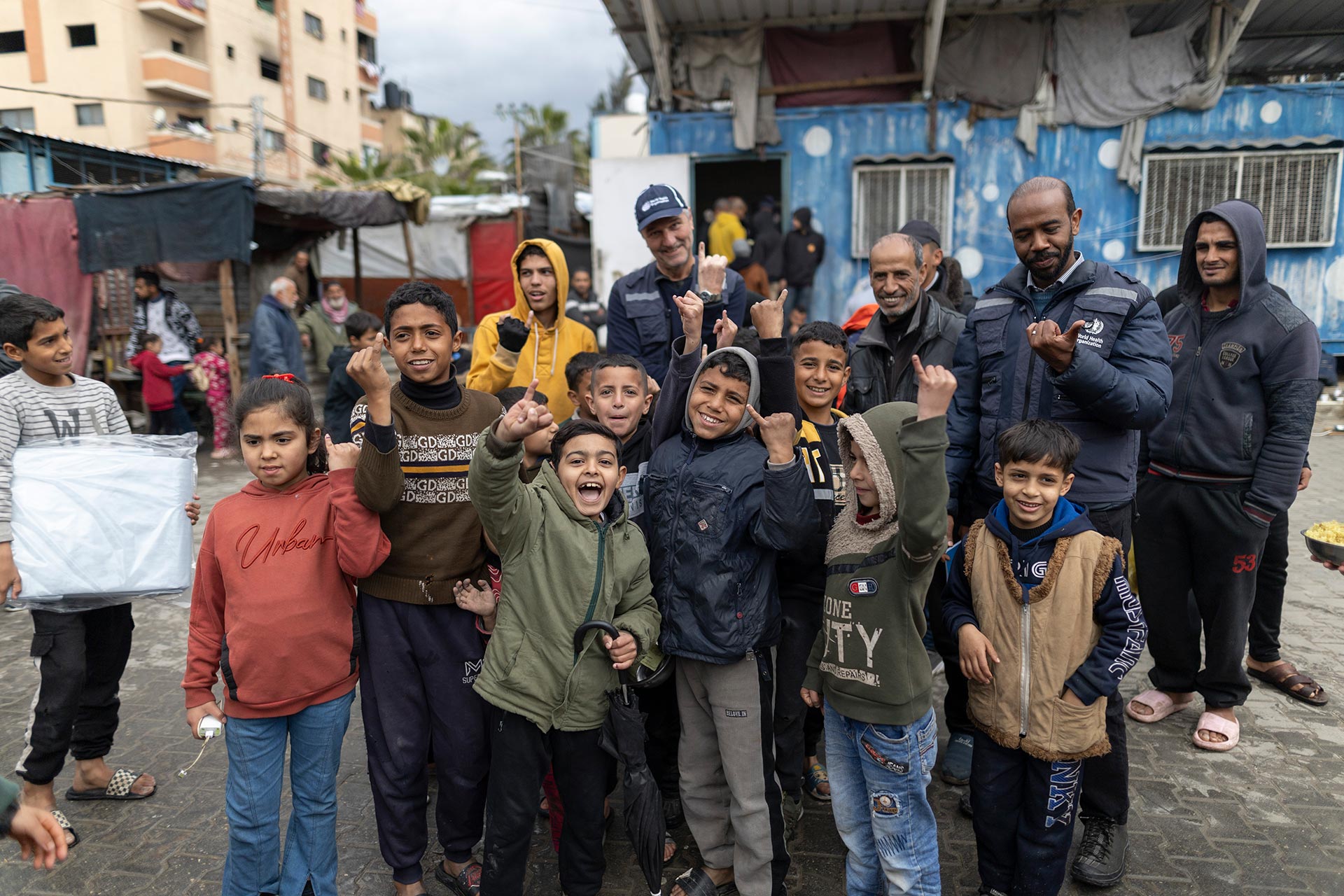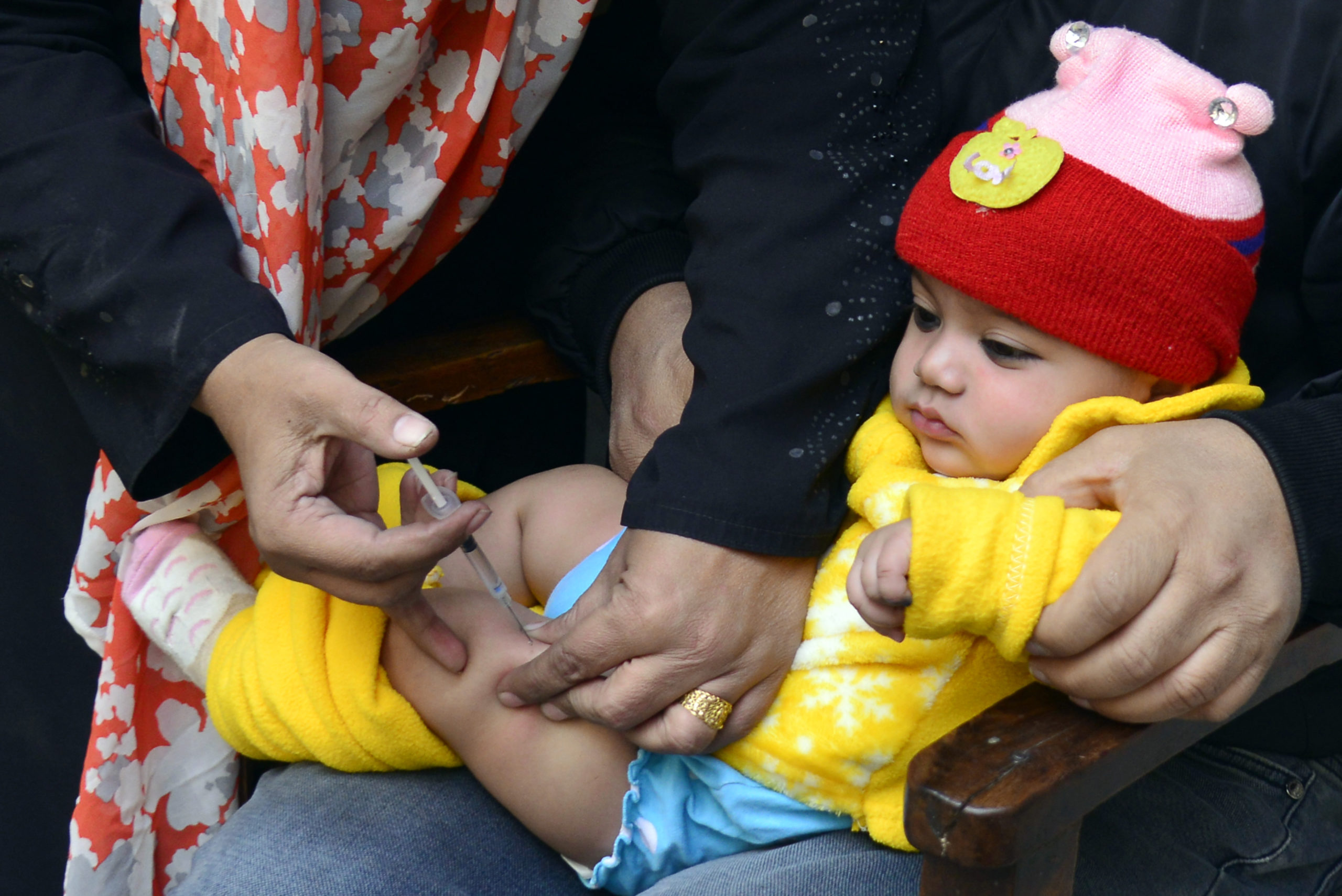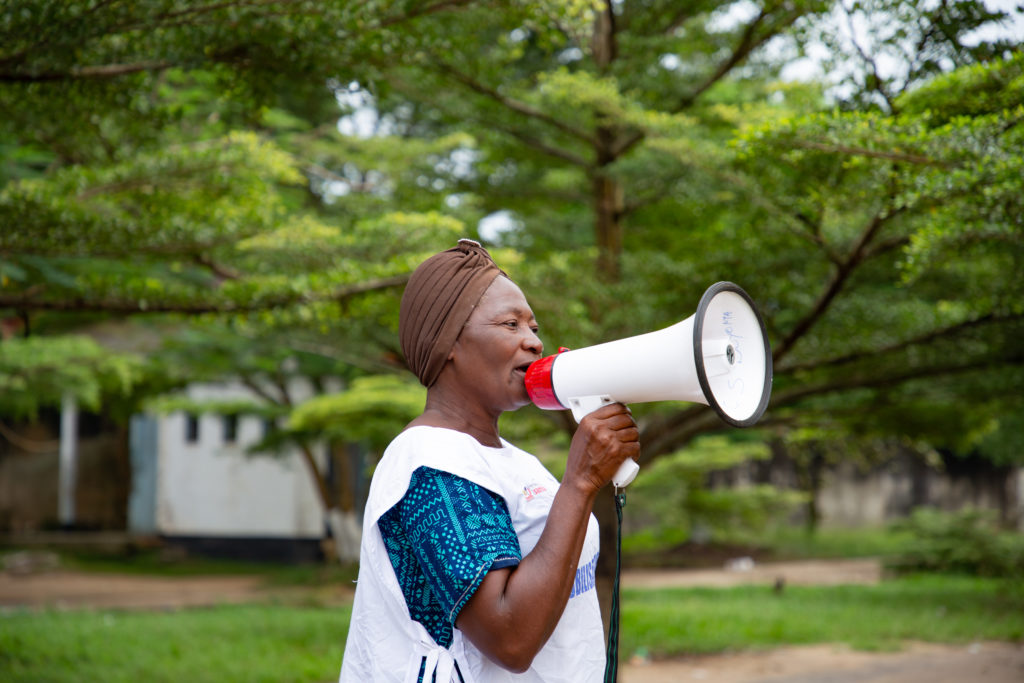
In Kisangani, every vaccination campaign changes the rhythm of daily life. The streets grow lively, families prepare, and everywhere the same concern is heard: keeping children safe.
Amidst this bustle, one familiar voice has stood out for over 25 years – that of Marguerite Simba, a tireless community health worker.
It is six o’clock in the morning. The sun is just beginning to filter through the trees that line the city’s streets. Marguerite walks with purpose, megaphone in hand, calling out to parents:
“Polio threatens the lives of children. To protect them, they must be vaccinated.”
She has repeated these words with unwavering conviction since she started this work. Even before the vaccination teams set out, Marguerite moves through her neighbourhood, helping to identify children and prepare families so that no one is left behind.
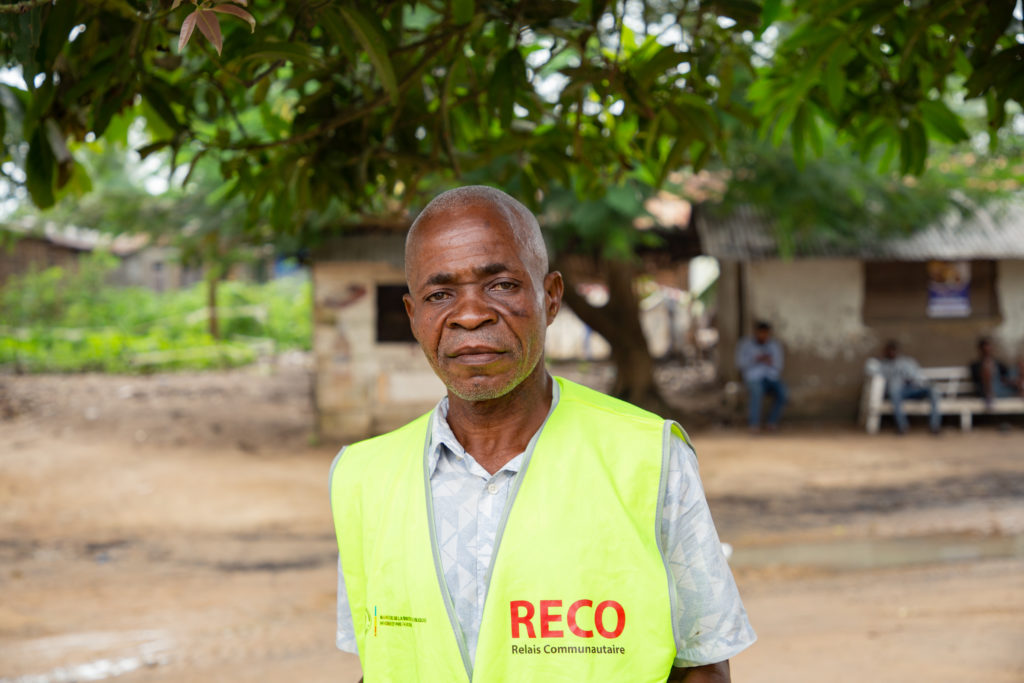
In the days leading up to the August 2025 campaign, Marguerite is not working alone. At her side is Antoine Otende Urudi, wielding a piece of chalk. Together, they go door to door: Marguerite speaks with families while Antoine marks each doorway with a sign showing how many children under five live inside and need to be vaccinated.
“We carry out this pre-marking before the vaccination teams arrive. It helps to count the children in advance, which makes the teams’ work easier,” Antoine explains.
The pair’s careful work ensures that the vaccinators know exactly where to go and that no child is overlooked.
This year, their mission carries special weight: for the first time, two vaccines are being given simultaneously to strengthen protection against the poliovirus strains still present in Kisangani and Tshopo province.
That is how Christina, aged 3, received four drops of vaccine. Just four drops, yet enough to shield her from a life-changing – or even fatal – disease.
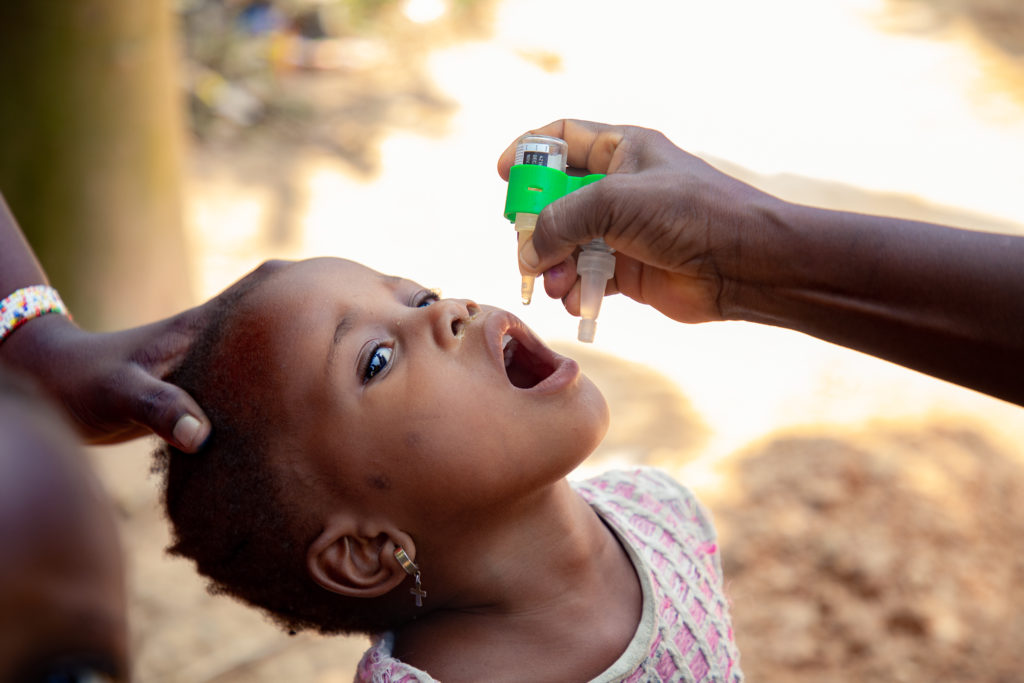
The Democratic Republic of the Congo (DRC) was declared free of wild poliovirus in 2015. But the struggle is not over: since 2017, cases of variant polioviruses have emerged.
In Tshopo province alone, more than 28 cases were recorded between 2022 and 2024.
These figures remind Marguerite that her work is as vital as ever. She knows every one of her neighbourhood’s 66 streets by heart and makes sure that every child receives their drops of vaccine.
Over the years, Marguerite has watched her community change. She recalls a time when, faced with children paralyzed by polio, many families sought mystical explanations.
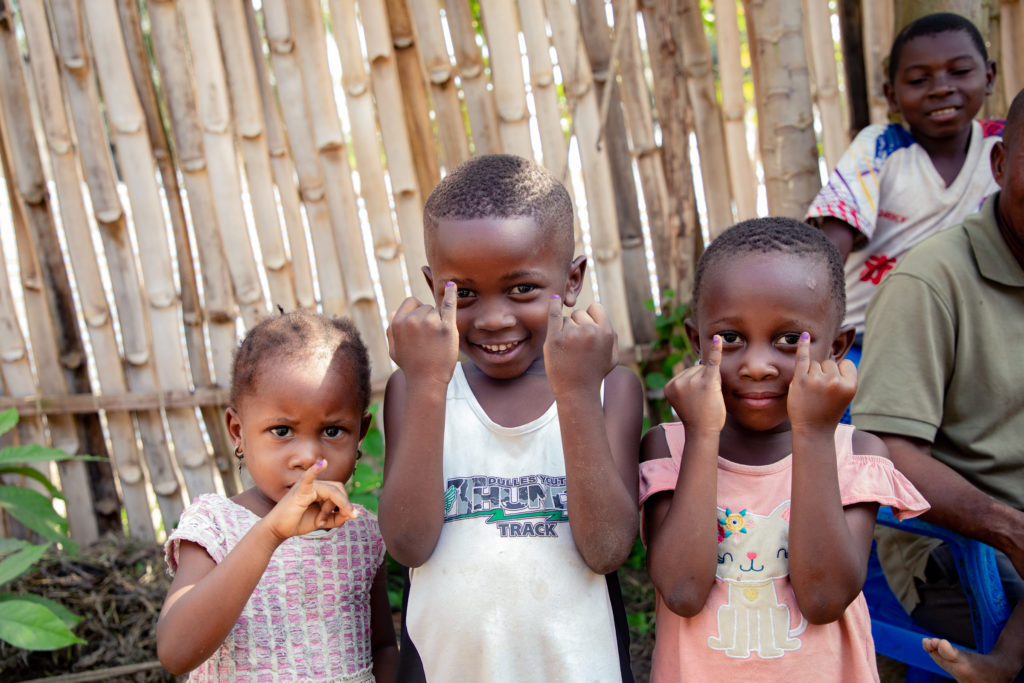
In 2025, more than 28 million children were vaccinated during campaigns organized across the country with the support of the Government of the DRC, the World Health Organization (WHO), the United States Agency for International Development (USAID), the Gates Foundation, the Government of Canada, Rotary, Gavi, the Vaccine Alliance, the Centers for Disease Control and Prevention (CDC) as well as the European Commission-European Investment Bank (EIB) and the King Salman Humanitarian Aid and Relief Centre (KSrelief).

